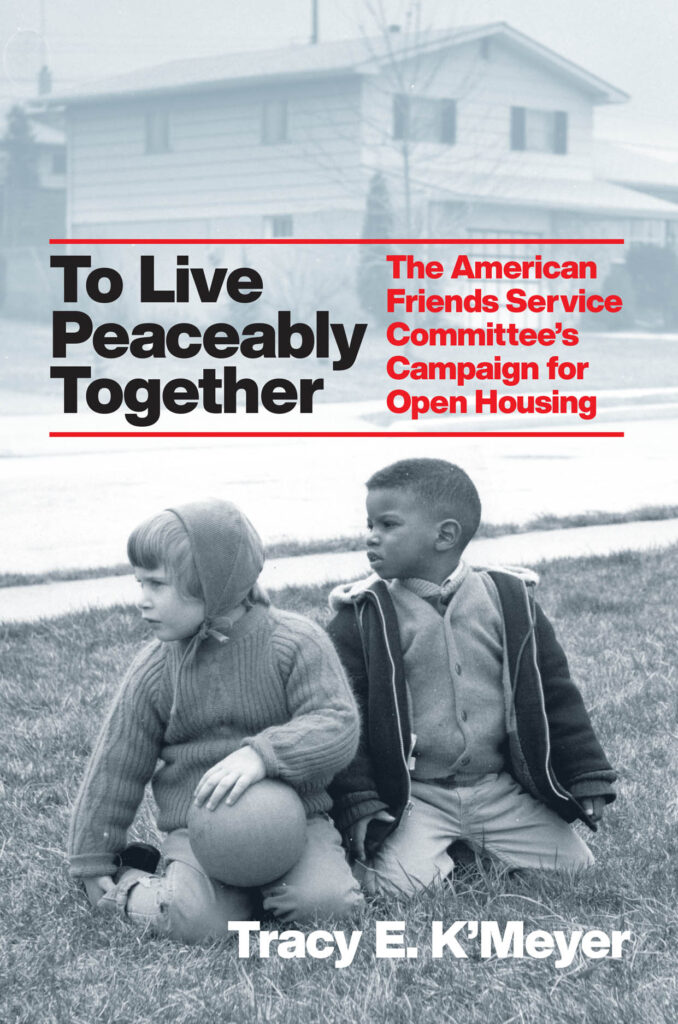 The American Friends Service Committee’s Campaign for Open Housing
The American Friends Service Committee’s Campaign for Open Housing
Civil rights historian Tracy E. K’Meyer tells a new story, in To Live Peaceably Together, about the seemingly intractable problem of racial injustice in housing in the United States after WWII. K’Meyer, author also of Civil Rights in the Gateway to the South: Louisville, Kentucky, 1945-1980 and From Brown to Meredith: The Long Struggle for School Desegregation in Louisville, Kentucky, 1954-2007, introduces us to the influential efforts of the predominantly white and Quaker-aligned American Friends Service Committee (AFSC) in housing integration in postwar America, in particular in Chicago, Philadelphia, and Richmond, California. To Live Peaceably Together shows that the AFSC’s evolving understanding of structural inequality led them to adopt a variety of open-housing advocacy strategies that would come to be adopted by many other groups and organizations.
To Live Peaceably Together also delves into the spiritual and humanist motivations that drove the AFSC’s work for open housing. In so doing, it highlights the crucial–and unexpected–role that Quaker values like peace, integrity, community, and equality have played in the housing struggles of the last seventy years.
Reviews and endorsements of the publication include:
“In To Live Peaceably Together, K’Meyer tells the story of how, in the 1950s and ’60s, white Quaker activists and allies used a variety of strategies and tactics to try to achieve open housing. Her deeply researched, well-argued book shows us how the American Friends Service Committee was central to this aspect of the early civil rights movement and how its work inspired other groups. K’Meyer proves beyond question how important spiritual motivation was for many of the activists who sought a more just America.”
― Thomas Hamm, author of The Quakers in America
“To Live Peaceably Together is an original and highly readable book that reorients our understanding of the Black Freedom Struggle in the North by focusing on an advocacy group run mainly by white allies, a historical topic with great contemporary relevance. I salute K’Meyer’s achievement in telling this fascinating and overlooked story.”
― Todd Michney, Georgia Institute of Technology
For more information on the publication, click here.
